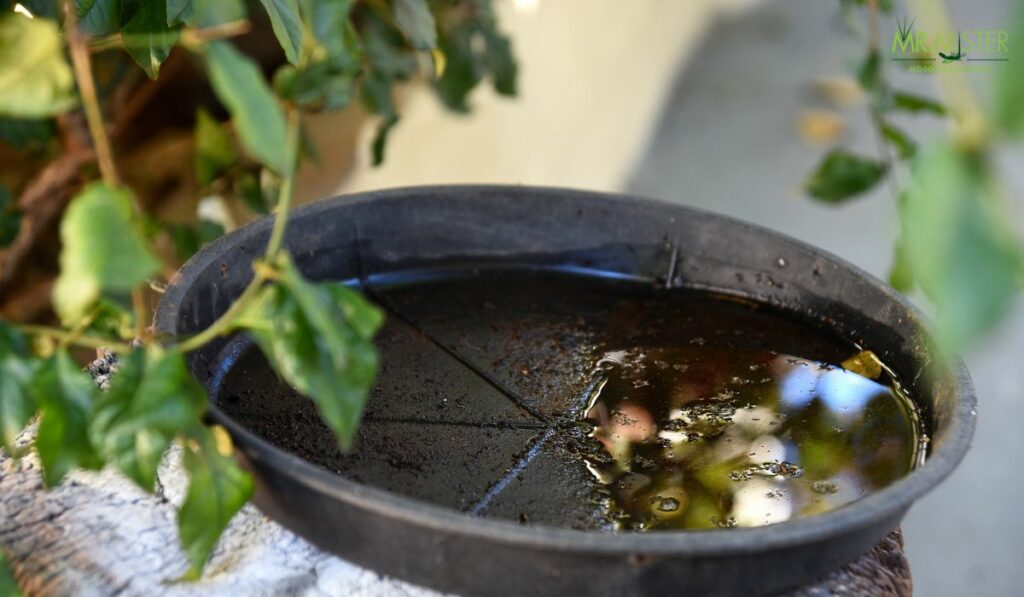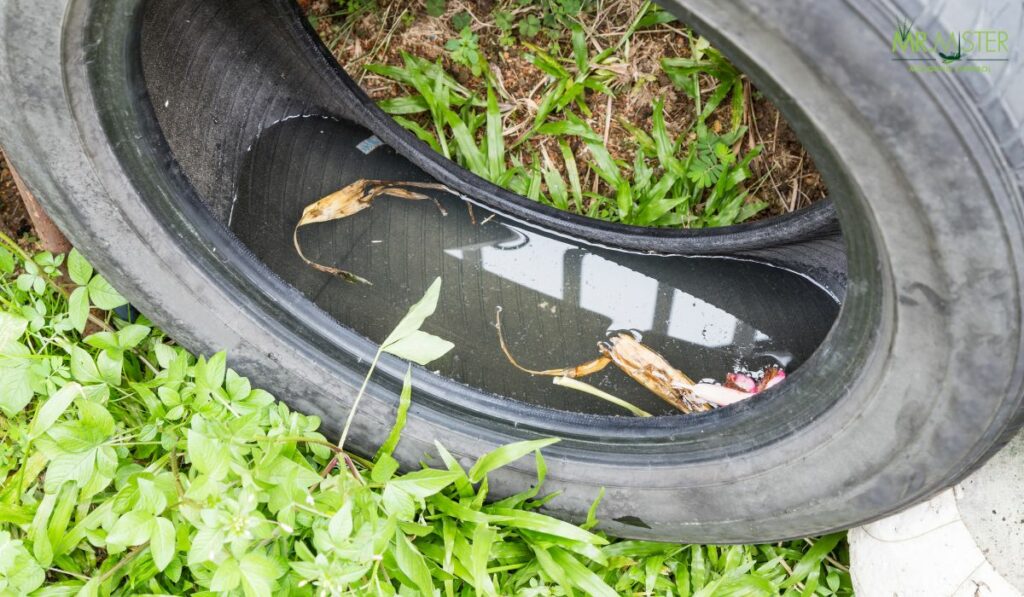How to Control Mosquitoes That Breed Indoors
Controlling mosquitoes that breed indoors is essential for maintaining a comfortable and healthy living environment.
These pesky insects can not only cause itchy bites but also carry harmful diseases.
To effectively manage indoor mosquito breeding, follow these steps:
Eliminate Standing Water
Mosquitoes breed in stagnant water, so the first step in controlling indoor breeding is to eliminate any standing water sources.
Check for and remove water from flower vases, pet bowls, indoor potted plant saucers, and any other containers that may collect water.
Check for Leaks and Damp Areas
Inspect your home for leaks or areas with excess moisture, as these can create breeding grounds for mosquitoes.
Repair any leaks promptly and ensure proper drainage to prevent water accumulation.
Clean and Maintain Drains
Regularly clean and maintain drains in your kitchen, bathroom, and utility areas.
Mosquitoes can lay eggs in the organic matter that accumulates in drains, so keeping them clean and free from debris can help prevent breeding.
Use Window and Door Screens
Install window and door screens to keep mosquitoes from entering your home.
Ensure that screens are intact and free from holes or tears that mosquitoes could use as entry points.
Keep Windows and Doors Closed
To prevent mosquitoes from entering your home, keep windows and doors closed, especially during dusk and dawn when mosquitoes are most active.
Use Mosquito Repellents
Indoor mosquito repellents can be effective in keeping mosquitoes at bay.
Use plug-in repellent devices, mosquito coils, or sprays approved for indoor use to repel mosquitoes and reduce their presence.
Employ Mosquito Traps
Consider using indoor mosquito traps that attract and capture mosquitoes.
These traps can help reduce the mosquito population indoors and provide additional protection.
Use Fans
Mosquitoes are weak fliers, and using fans indoors can help disrupt their flight paths, making it more challenging for them to fly and land on you or breed.
Maintain Cleanliness
Keep your indoor spaces clean and tidy.
Regularly clean up spills and food crumbs, as mosquitoes are attracted to these sources of food.
Seek Professional Help if Necessary
If you’re facing a severe indoor mosquito infestation that you can’t control with these methods, consider seeking assistance from a professional pest control service.
They can assess the situation and provide targeted solutions to eliminate mosquitoes effectively.
Conclusion
By taking proactive measures to control mosquitoes that breed indoors, you can create a more comfortable and mosquito-free living space.
Removing standing water, keeping your home clean and dry, using screens and repellents, and employing mosquito traps are all effective ways to reduce indoor mosquito breeding and create a more pleasant indoor environment.
Remember to combine these methods with proper outdoor mosquito control to maximize the effectiveness of your efforts and enjoy a mosquito-free home.
Frequently Asked Questions (FAQ)
Why do mosquitoes breed indoors?
Mosquitoes breed indoors in areas with standing water, which provides an ideal environment for them to lay their eggs. Common breeding sites include flower vases, potted plant saucers, and pet water bowls.
Are indoor-bred mosquitoes more dangerous than outdoor ones?
Indoor-bred mosquitoes can carry the same diseases as their outdoor counterparts. While they may be more concentrated in indoor spaces, the risk of disease transmission remains the same.
Can mosquitoes breed in small amounts of water?
Yes, mosquitoes can lay their eggs in even small amounts of standing water, such as a bottle cap or a discarded container. Eliminating all standing water, regardless of quantity, is crucial in controlling mosquito breeding.
How do mosquito repellents work indoors?
Indoor mosquito repellents work by emitting substances that deter mosquitoes from entering or remaining in the treated area. They often contain ingredients like DEET, picaridin, or essential oils known for their repellent properties.
Can I use natural remedies to control indoor mosquitoes?
Yes, some natural remedies, such as citronella candles or essential oils like lemongrass or lavender, can help repel mosquitoes indoors. However, their effectiveness may vary, and they might not provide complete protection.
How often should I replace mosquito repellent devices indoors?
The frequency of replacing mosquito repellent devices depends on the product and manufacturer’s recommendations. Some devices have refillable cartridges or replaceable pads that need regular replacement.
Can mosquito traps attract more mosquitoes indoors?
Mosquito traps use attractants to lure mosquitoes, but they are designed to capture and contain the mosquitoes effectively. When used correctly, traps should not attract more mosquitoes to your indoor space.
Are indoor mosquito traps safe to use around pets and children?
Most indoor mosquito traps are designed to be safe for use around pets and children. However, it’s essential to follow the manufacturer’s instructions and place the traps out of reach of curious hands or paws.
Why do mosquitoes seem to be more active at certain times of the day?
Mosquitoes are more active during dawn and dusk because these times provide optimal conditions for feeding and breeding. They are also less active during the hottest part of the day when temperatures are less favorable for their activity.
Can indoor plants attract mosquitoes?
Indoor plants themselves do not attract mosquitoes. However, overwatering indoor plants can create breeding grounds for mosquitoes in the saucers or pots with standing water, so it’s essential to manage indoor plant watering carefully.
* Schedule a Free Mosquito Control Consultation – 404-941-0720 *
* Guaranteed Results * 100% Biodegradable * Locally Owned







